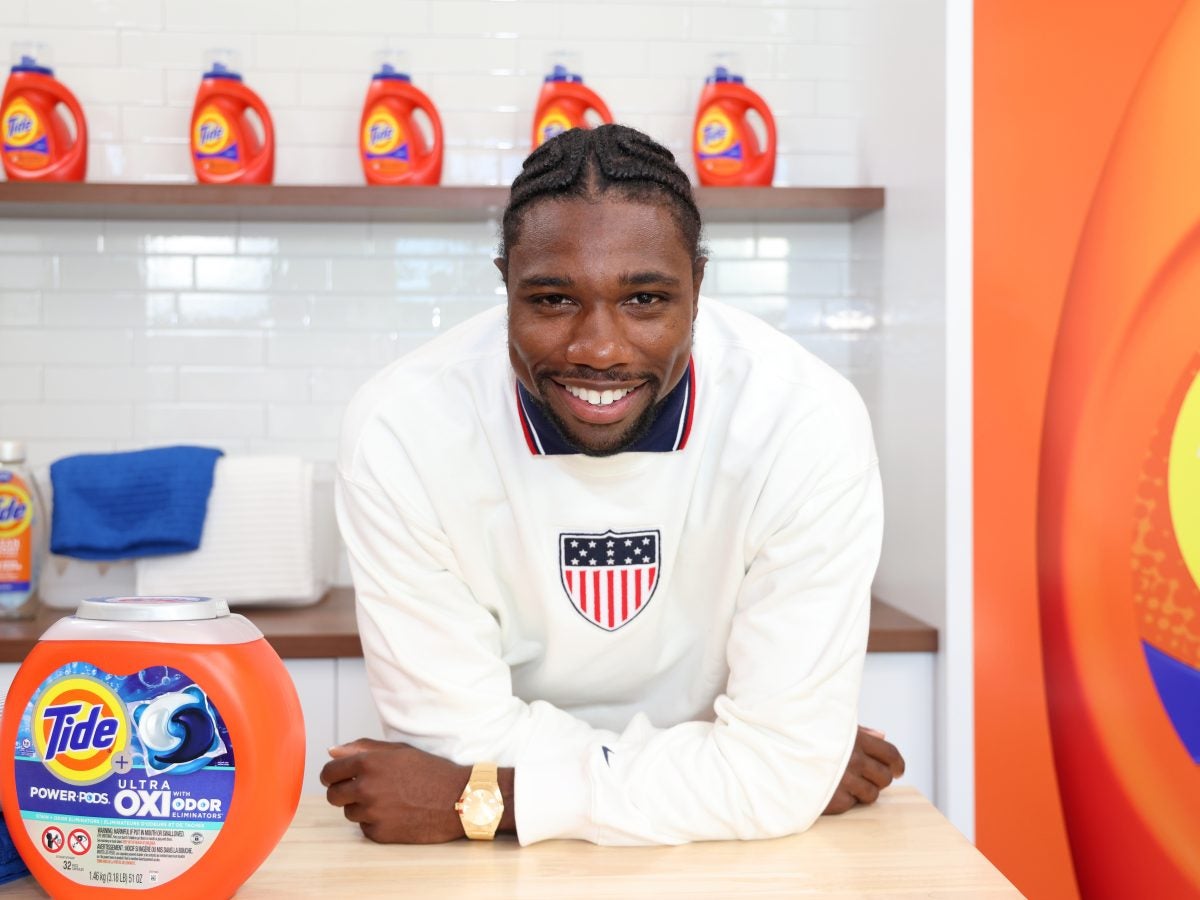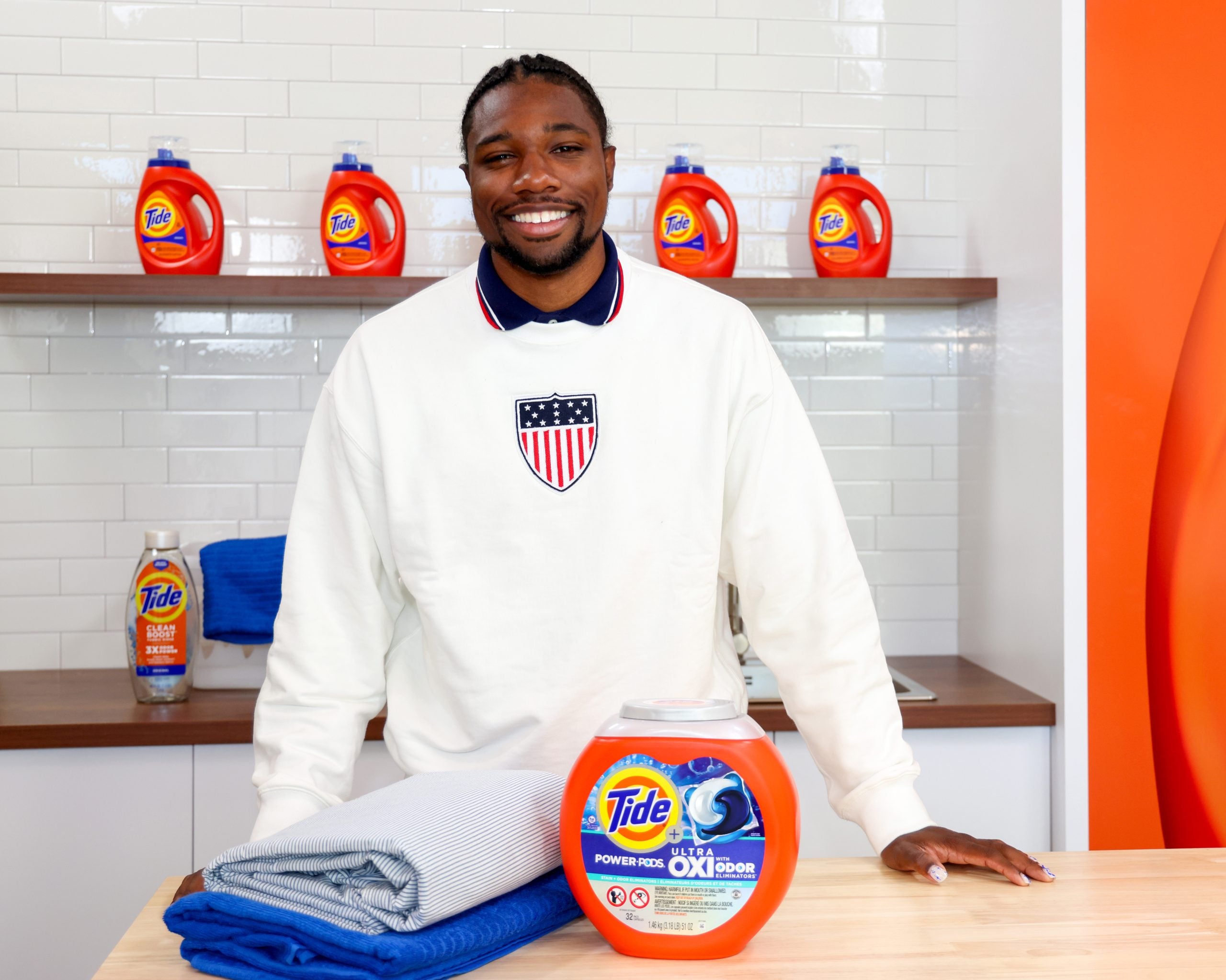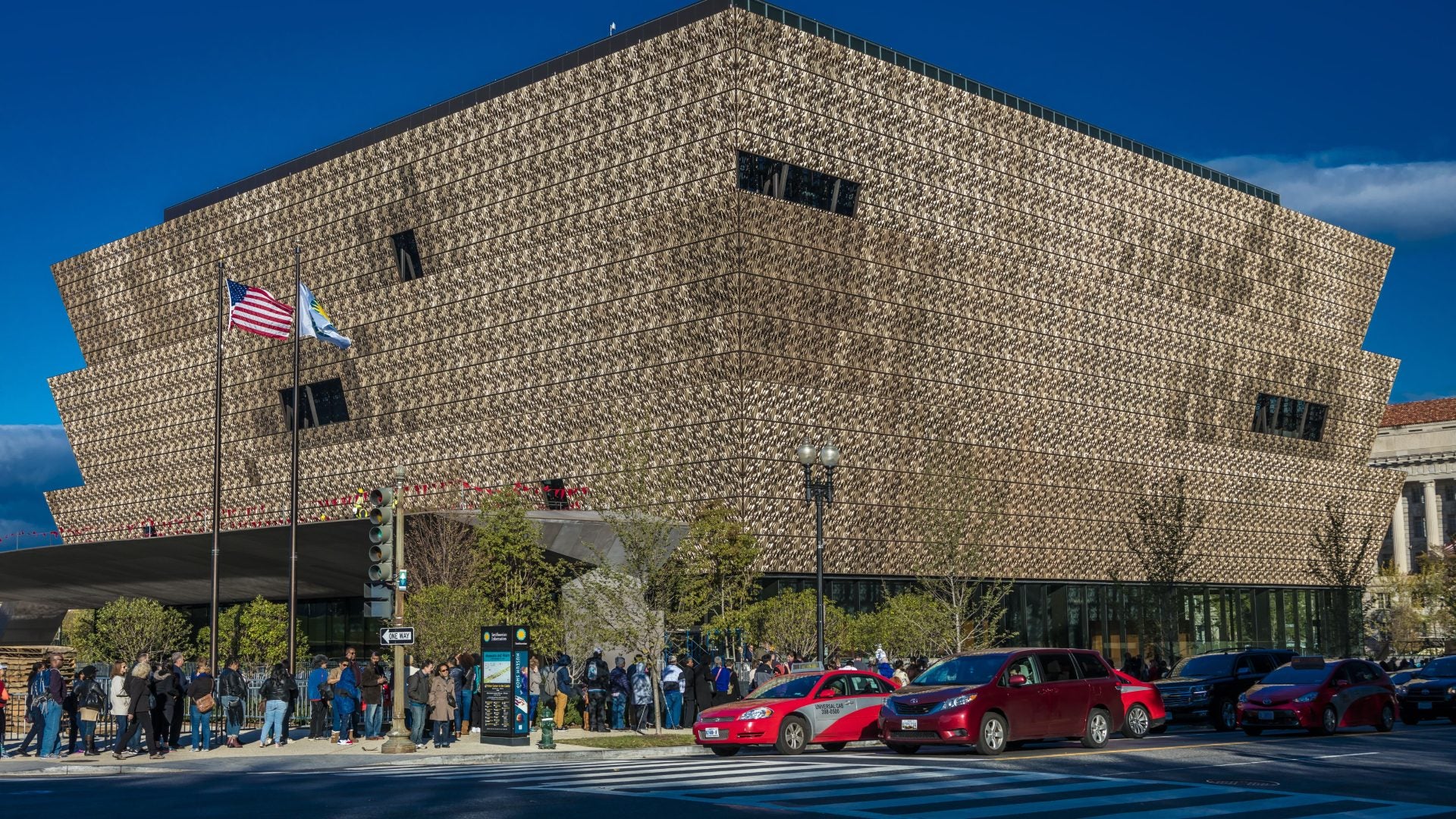
If you ask most people who Noah Lyles is, they’ll tell you he’s a track star. But when I asked the man himself, Lyles, who had just won gold in the 100 meters during the Paris Olympics, said, “At the end of the day, I’m an artist.” This title explains Lyles’ flair when he steps on the track. It’s in his painted nails and the intricacies of his hair. (He’s been wearing pearls in his braids for the past several months.) We catch it in the confident movements he makes as he steps in the blocks and the adrenaline-filled, braggadocious moments after he’s crossed the finish line, often in first place.
“An artist loves to have a project, and they love for the project to be seen,” Lyles tells ESSENCE. But for all of the moments we can see, Lyles does a lot of internal work to tackle life’s messiest challenges — and to achieve athletic feats.
Lyles has partnered with Tide for their new campaign, “Stains Happen to the Best of Us.” The message is that life can get messy no matter who you are. If you use Tide or a team of therapists, there’s a way to make the best of a tricky situation. Whether he’s dealing with a stain or something as unsettling as a scary golf cart accident while riding to a race, Lyles shared that he bounces back by centering himself.
“Stains are way easier to deal with. I have Tide for that,” Lyles says. “There’s no real worrying that goes on there. Golf carts, on the other hand, are a different story. It’s more of a reassessment of the body, calming the mind. I can’t do anything without a focused mind.”

Thankfully, Lyles excels at crisis management. He employs a strategy of identifying a list of priorities and working his way down. And his family’s support–and the similarities he shares with his mother–has proven invaluable in Lyles’ career and life success.
“Me and my mom–I’d say we’re spitting images of each other. I’m just the male version,” he says. “We have each other’s smile. Our laugh. We think very similarly. We both have depression. We’ve both dealt with similar setbacks in our life. It creates a lot of bonding for us.”
Lyles’s mother reminded him that “therapy is a checkup from the neck up.” He’s taken this adage to heart as he currently works with three therapists who help him check in physically and mentally.
“I study something different with each one of them,” Lyles explains. “With my sports therapist, it’s about how we’re going to ingrain what we did in practice into the body and the mind. For that, we do a lot of visualization. A lot of breathing techniques. But not as much as I do with my grief therapist. We actually talk about not just what am I thinking but how’s my body reacting to that thought. In my regular day-to-day therapy, we constantly air out what is happening in my life. How do I address it in a better situation or scenario? How do I just be a better human being?”
All of this helps Lyles excel on the track.
“When you do start going to therapy, it’s truly just a better way to understand yourself,” he says. “You’re not studying anything but yourself. Once you start learning that, you start learning human behavior, and you can start seeing it in other people. When that starts happening, you start having almost a leg up on everybody. Whether you decide to use that for good or evil…with great power comes great responsibility.”
Thankfully, Lyles seems to be using his power to encourage himself and others. When asked what his goals are for this year’s Olympic Games, he says, “To be honest, I’m just going to be me,” Lyles says. “Everybody’s like, ‘Oh, I want to be like you.’ If you want to be like me, just be you. That’s all you can be. And I’m pretty dang good at being me. I love it. It’s fun. It’s enjoyable. I love to put on shows, and what better place to put on a show than at the Olympics.”




